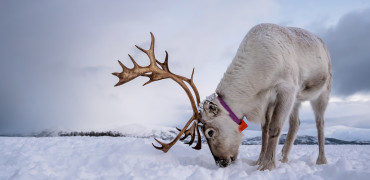I’m writing this article based on a trailer for a BBC programme that I’m urging everyone to watch.
Before I get into what it’s about, I want to tell you a story about my neighbour’s house alarm recently going off at 3 in the morning. After 15 minutes of screaming noise, I got up to see what was happening and noticed all the power was off in my house.
Looking out of the front door, all the lights in the street were also out.
Obviously a local power cut had triggered the alarm, but it also meant I had to reset our fuse box before I could make that ‘middle of the night’ cup of tea that my wide-awake self now needed (it also meant I had turned the freezer back on, thereby avoiding a costly mess in the morning!).
We all take the comforts of modern life for granted
Blackness all around
It was quite a shock looking out into the street and seeing no signs of life anywhere. Blackness all around. No windows lit up, and not a sound to be heard – except the screaming alarm, which did stop eventually!
And it got me thinking about how much we all take the comforts of modern life for granted, especially at the moment when home is all we have.
Even with the pandemic, we still all expect the lights to come on, the heating to be there, and the fridge and TV to work.
And now back to the TV trailer and why I do think it might change your life, if not save it.
If you think that’s a bit overdramatic, well ask yourself, if someone was telling you that the way you live and the things you take for granted like heating, electricity, TV, the Internet, were all under threat, would you listen?
A real and imminent threat
Because the way we live, here, now, at the start of the 2020’s is seriously under threat.
And the threat is called climate change – and it isn’t going away, unless you and I do something about it.
Next Monday 12th April at 9pm on BBC1 sees the first of a 3-part series called ‘Greta Thunberg – a year to save the world’.
Now I know Ms Thunberg evokes mixed emotions and you probably think you already know what the programme is going to say, but I bet you don’t know the full details.
As the inspiring Greta says herself in the trailer “Don’t listen to me, listen to the science”.
Hiding is not an option
As we’ve written about here before on The Hub, failing to tackle global warming and find ways to mitigate the effects of climate change will be disastrous for our planet – and our way of life (no, I wasn’t being overdramatic in my headline!).
Rising sea levels will see cities like Venice and Amsterdam simply disappear under the waves. Extreme weather will cause more flooding and forest fires. Deserts are spreading further and wider than ever before.
And both biodiversity and human diversity are already suffering. We’re seeing a demise of bees and other insects that are essential for pollination, and birds and other wildlife are under threat as never before.
And as we’ve written about here, indigenous societies are already under threat as climate change threatens the way they have lived for hundreds of years.
Dealing with this will take global action and that is why the countdown to COP26 in November is so important.
We will see the world’s leaders descend on Glasgow to talk about ways of stopping the global rise in temperatures.
But we need more than just talk and many global brands are already on the case as well, with several pledging to become carbon neutral by 2030 as we all find ways to achieve net zero.
And individuals, such as the inspiring David Attenborough and Greta Thunberg are raising awareness to reach more and more people and wake them up to the impending disaster before it is too late.
So what can you do?
And this is where you come in.
There are things we can all do to reduce our own impact, in our own, small way. Even simple things like not leaving TV’s and computers on standby can helps – yes, they still consume power even when you’re not using them.
If we all boil half a kettle instead of always boiling a full one, not only will we get our tea or coffee quicker, but we will be saving power.
And, little by little, those individual acts grow into a phenomenal collective saving of energy.
So what you (and I) do is important and will make a difference.
And the first thing you can do is find an hour to watch that programme on April the 12th at 9pm on BBC1 (Don’t record it for later as you just know you’ll never get around to watching it).
After all, you can spare one hour to save the world can’t you?
Russell Jones is content and communications manager


